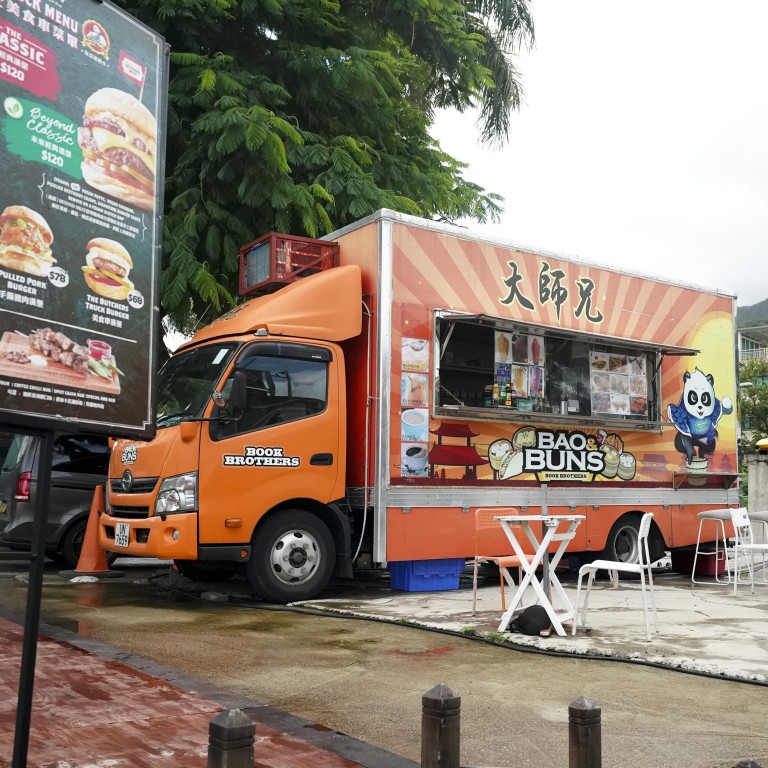
No visitors, no buzz: Hong Kong’s food truck operators see the end of the road amid Covid-19 pandemic
- Only three of 15 trucks still in operation, struggling through economic downturn, pandemic
- Early success gave way to complaints about restrictive rules, curbs on where trucks could go
Hong Kong’s experiment with food trucks is dying. Four years after they burst on the scene, with a competition to select vendors on wheels, they are now rolling off into the sunset.
“The operators are losing millions of dollars this year alone,” said Gordon Lam Sui-wa, chairman of the Hong Kong Food Truck Federation.
From 15 trucks in 2016, only three are still in operation. The rest are locked in car parks or no longer in operation, their owners having given up.
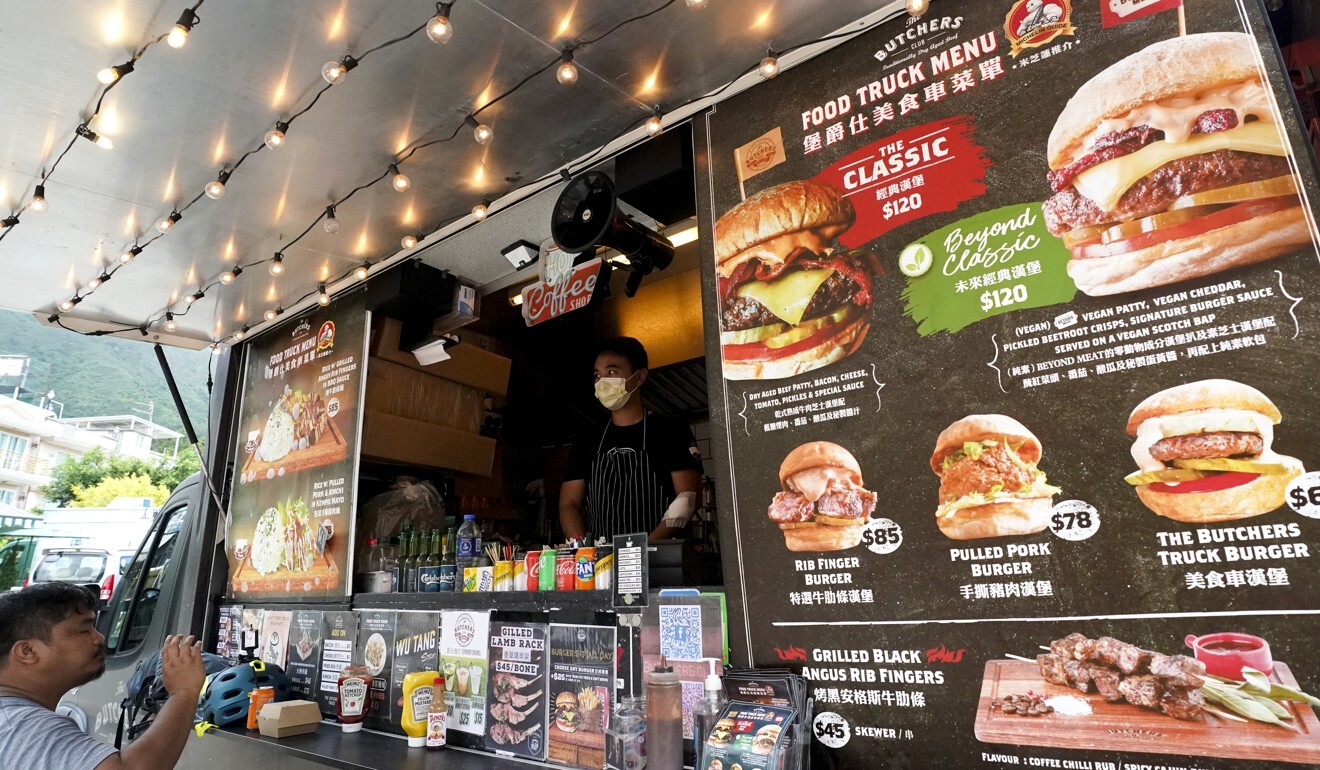
The first couple of years seemed promising, although operators were soon complaining about strict rules, including being limited to designated spots and having to change location every two weeks.
Then came last year’s social unrest, which brought tourist numbers crashing down. This year’s Covid-19 pandemic saw visitors disappear altogether, and restrictions to keep the virus at bay meant even local customers stayed away.
Slump in business adds to woes of Hong Kong’s food truck operators
“As a result of social-distancing rules at government facilities and tourist destinations, we have been forced to suspend business,” Lam said.
He expects the last of the food trucks to exit the scene when the four-year trial ends in February next year.
The trucks sold everything from dumplings and pineapple buns to fried noodles and salad bowls. At one stage, business was best at the Hong Kong Disneyland Resort on Lantau Island.
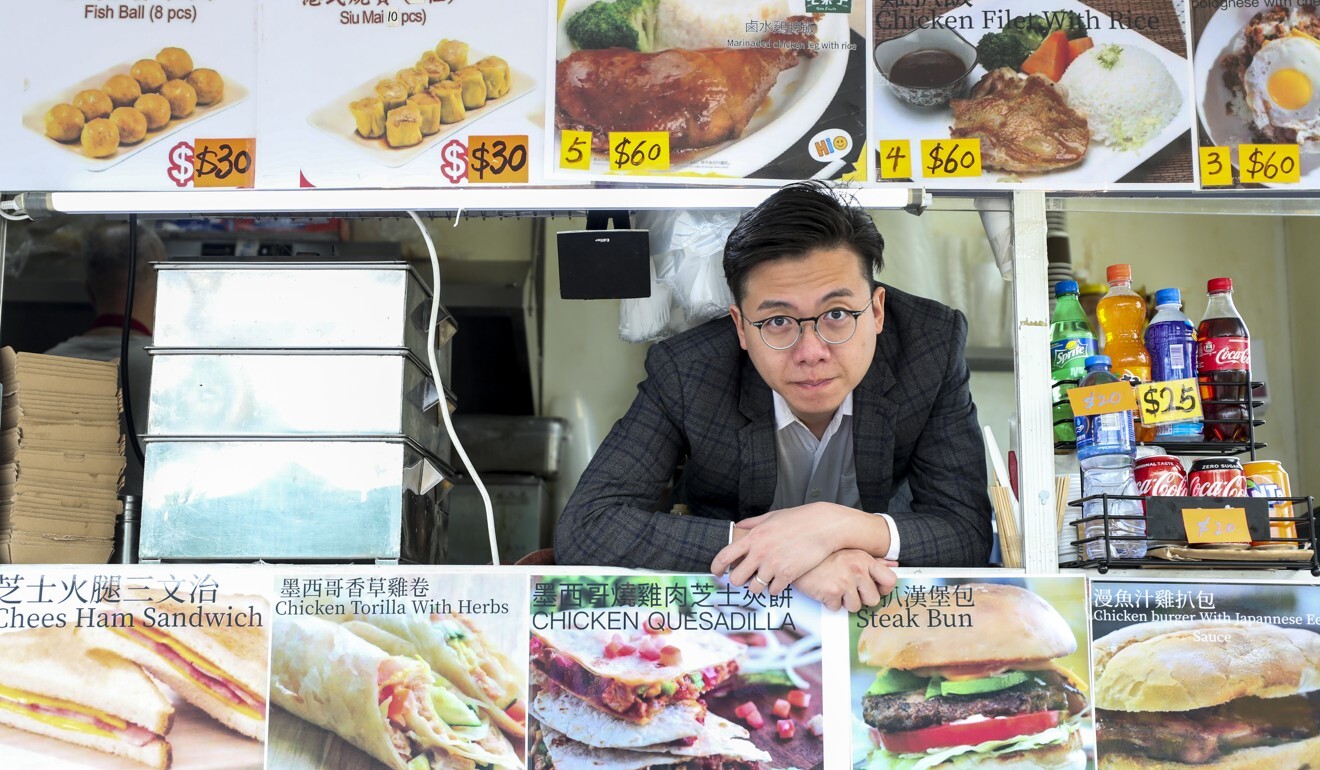
Lam, a member of the opposition Civic Party and owner of the Table Seven x W. Burger food truck, said the operators wondered about the government’s plans for the scheme.
“It has only given financial help of HK$80,000 to each of us in the first round of pandemic relief measures,” he said.
Licensed under the “food factory” category, the food trucks received the one-off cash subsidy during the government’s first relief package of HK$30 billion in February. They were left out of the second aid package worth about HK$137.5 billion in April and the HK$24 billion third round of measures this month.
Lam said the aid was a drop in the ocean for the struggling food truck operators. He asked: “Is the government giving up on the food trucks?”
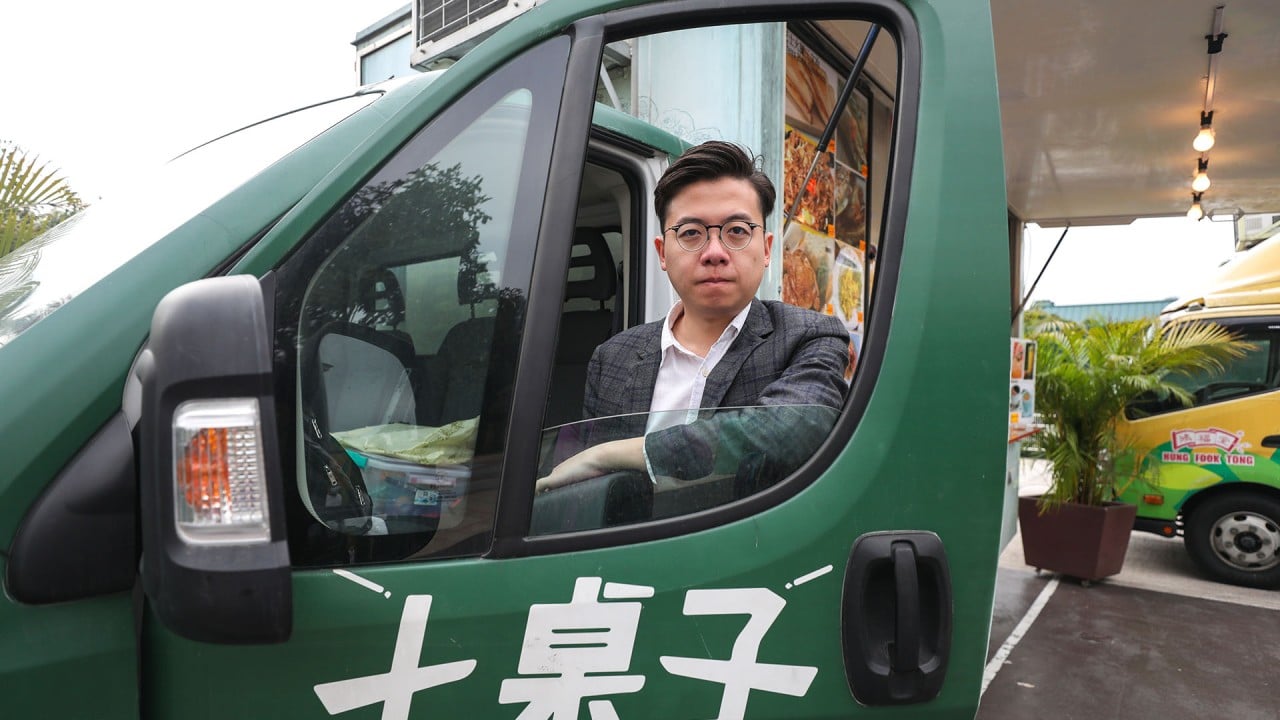
03:05
Hong Kong food trucks demand policy changes to save their businesses
A Tourism Commission spokeswoman said the government was aware of the food truck operators’ problems and had offered them various fee waivers and assistance, as well as expanding the number of spots where they could operate.
The government would reveal its decision on the way forward for the scheme within this year, she added.
The food trucks’ gross revenue collapsed to just HK$540,000 in the first eight months of this year, from HK$8.17 million over the same period last year, she said. The commission did not have information on truck operators’ profits and losses.
At best, I can earn about HK$1,000 or HK$2,000 a day, but it is only enough to pay my parking fees
Hong Kong visitor arrivals plunged 99.9 per cent to merely 4,449 in August, and came down 91.9 per cent to 3.54 million in the first eight months of this year. Key destinations such as Disneyland and Ocean Park, once among the most lucrative locations for food trucks, have been closed for months.
“We could not do business properly last year already,” he said.
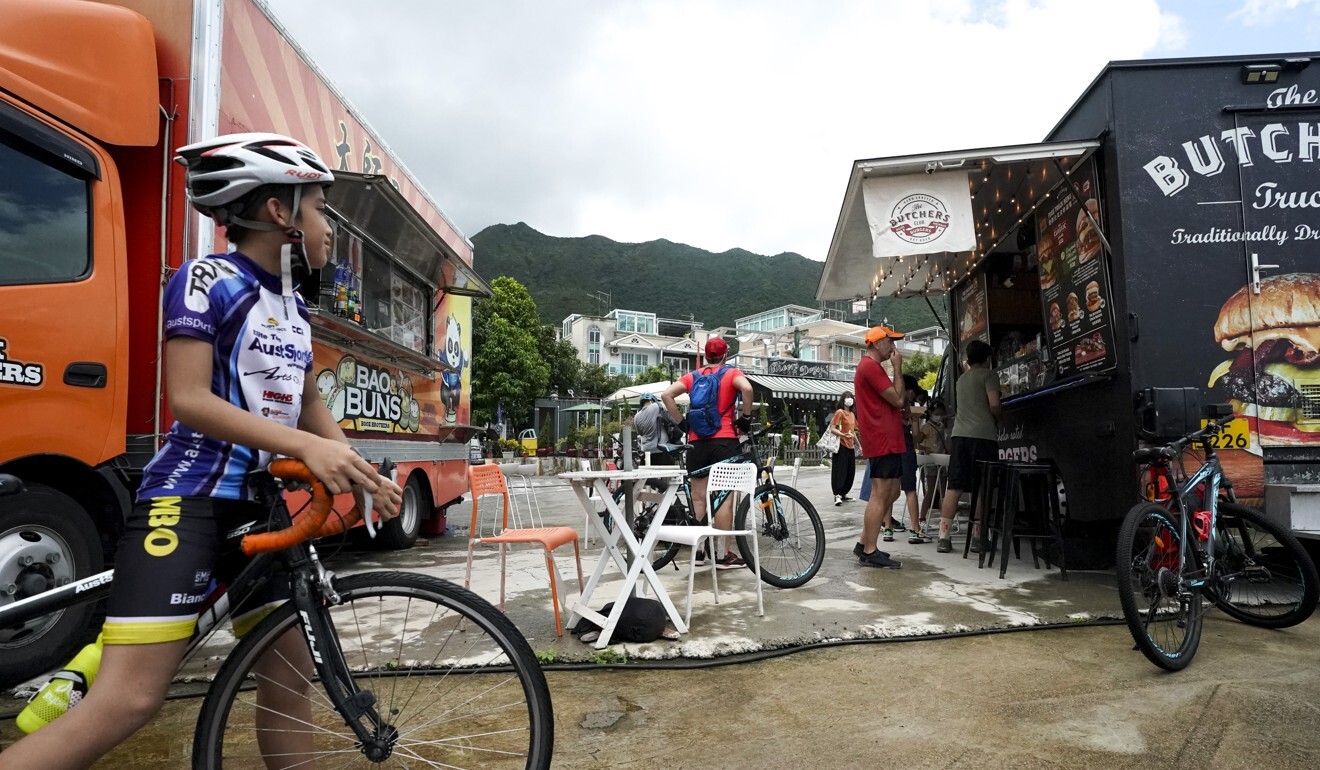
That added to the woes of operators, whose licensing rules kept them at fixed locations to minimise competing with restaurants. Although they were on wheels, they were not allowed to move about looking for better spots to do business.
The owner of the Book Brothers food truck, which sells Beijing roast duck buns, is planning to quit even if the government extends the scheme once more.
Asking to be identified as Cheung, he said he had lost “millions of dollars” so far, and added: “I am very disappointed.”
Why Hong Kong’s food truck scheme is failing to get into gear
To reduce costs, he let go of about three staff members and sold his food production facility recently. Cheung said he recently received approval to set up his food truck at a scenic picnic area in Tai Mei Tuk, in Tai Po.
“If the weather is good, you will see me cooking and selling buns and driving the food truck on weekends,” he said. “It’s a one-man show now. At best, I can earn about HK$1,000 or HK$2,000 a day, but it is only enough to pay my parking fees.”
The business also had some fixed costs such as insurance, which amounted to about HK$40,000 a year.
“I want to return the licence and sell the truck to the government whether it wants to renew the scheme or not,” he said.
Food truck operator Ben Liu Chun-ho, who runs Ma Ma Dumpling, said his truck had been parked in Kwun Tong for HK$4,000 a month since October last year.
“I am still paying car park fees, insurance and other expenses, which add up to about HK$100,000 a year,” Liu said.
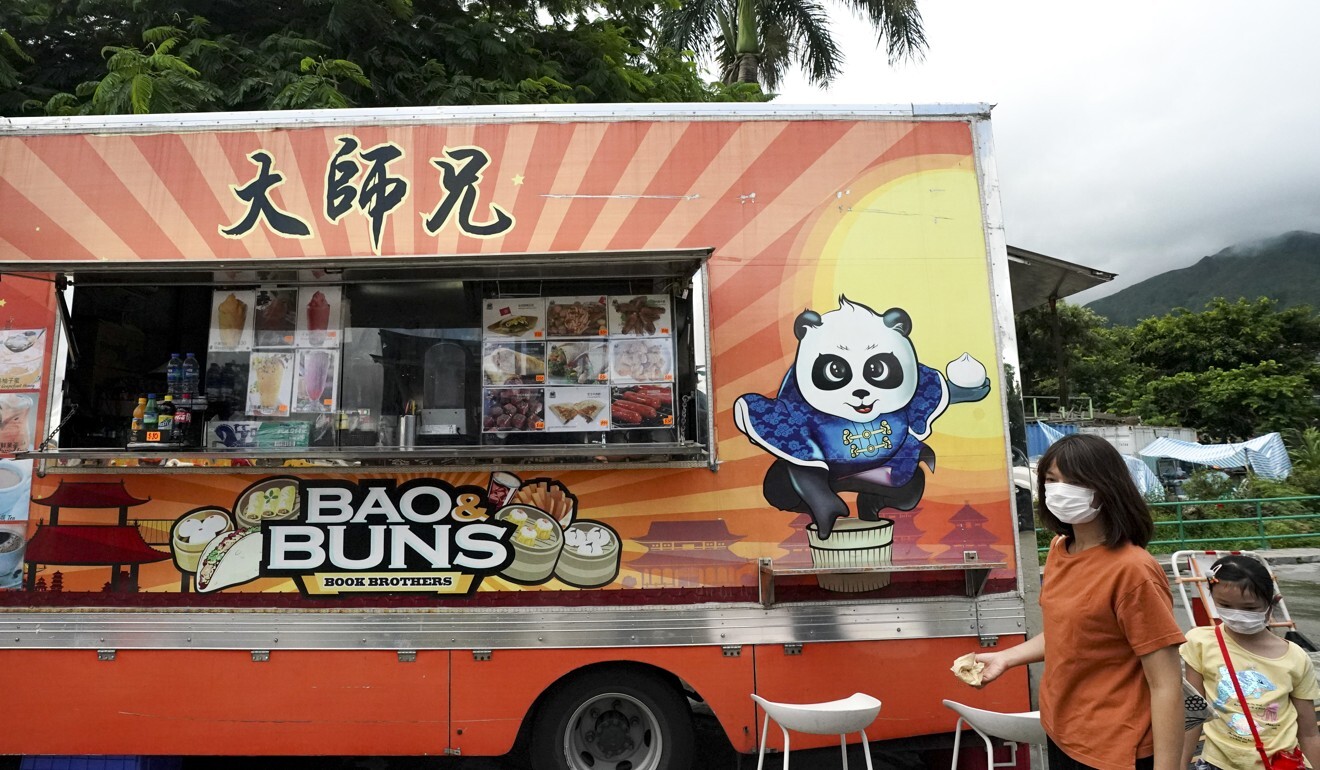
The Tourism Commission spokeswoman said the government had heard the operators’ views and relaxed restrictions by introducing six new venues between November 2017 and June 2020.
These spots were at the Hong Kong University of Science and Technology in Clear Water Bay, Hong Kong Science Museum in Tsim Sha Tsui, the Hong Kong port of the Hong Kong-Zhuhai-Macau Bridge, Tai Po Waterfront Park, Jockey Club HKFA Football Training Centre and West Kowloon Cultural District.
That made for a total of 13 venues, although some are temporarily closed.
Aside from the HK$80,000 subsidy, the government also exempted operators from having to pay annual renewal fees for their food factory licences, registered commercial vehicle licence and vehicle examination fees in 2020 and 2021. There were also rental cuts at government venues and the two major theme parks.
“We will explore further measures to assist the food truck business,” the spokeswoman said.

